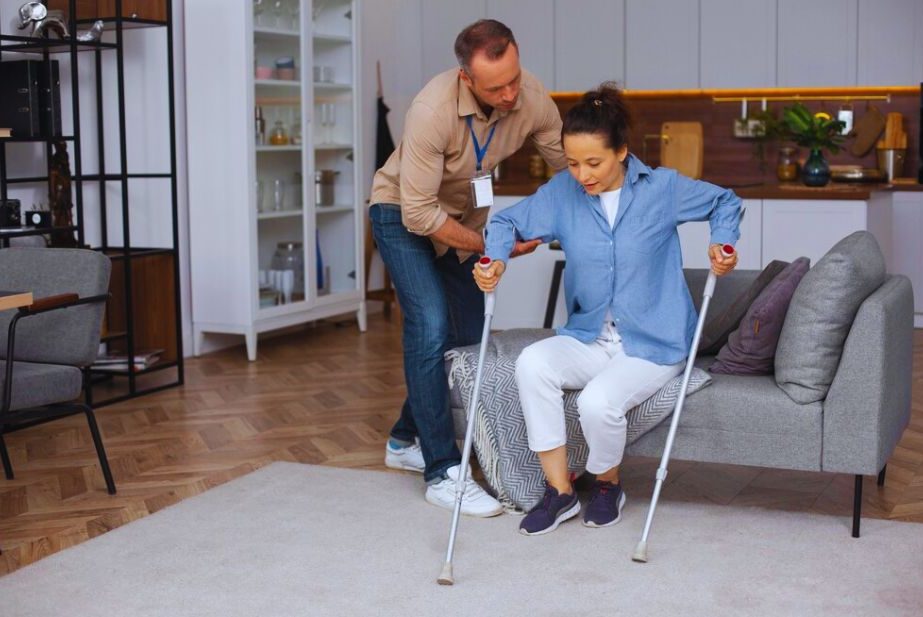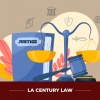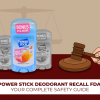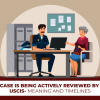
Manhattan Beach offers stunning coastal views, lively shops, and inviting public spaces, but accidents can happen anywhere—even on someone else’s property. Whether it’s a slip on a wet floor, a trip over uneven pavement, or an injury caused by unsafe conditions, the question remains: Can you sue? Property owners have a responsibility to keep their spaces safe, but proving negligence isn’t always simple.
If you are in such a situation, consider hiring a premises liability lawyer in Manhattan Beach for your case. They assess the details, gather evidence, and determine whether you have grounds for a claim. From negotiating with insurance companies to representing you in court, legal guidance can make all the difference.
Knowing your rights and the steps to take after an injury can help you seek fair compensation for medical bills, lost wages, and more. Here’s what you need to know about premises liability and your legal options.
An Overview of Premises Liability
Premises liability is the legal obligation of property owners to others for injuries sustained while on the property.
Premises liability is a legal term that holds ownership accountable for maintaining safe grounds so visitors do not have accidents. Accidents happen, and premises liability helps to understand whether a lawsuit is feasible.
Indeed, the premises owner does not bear unlimited liability; they are only liable for preventable accidents.
Most Common Types of Premises Liability Cases
Here are the most common types of premises liability cases, which includes:
- Crimes occur due to insufficient security.
- Slip and fall accidents.
- Dog bite incidents by unrestrained dogs.
Although these aren’t the only types of premises liability cases, they are the most common.
The Four Elements of Premises Liability
Every legal case can be broken down into four main discrete elements. These breakdowns can be studied to win your claims.
- Suppose the defendant was the present occupier or property owner at the time of the incident or the injury. For example, If a business owner leases a property, perhaps a shopping mall, they will still bear the weight of premises liability.
- Whether or not the defendant’s maintenance and care of the property suffered negligence. Negligence can roughly mean “carelessness.” If the defendant broke a safety regulation or law, the victim might establish certain negligence without such violations.
- Whether the victim suffered any tangible injury or not. If yes, damages for tangible injuries, such as suffering, pain, or mental distress, can be claimed.
- If the defendant’s negligence is the cause of the victim’s pain or injury.
The next step is settlement negotiations if the defendant is liable for the dangerous premises. A premises liability settlement sometimes involves a large amount of compensation.
Categories of Visitors and Their Rights
Depending on the purpose of their presence on the property, visitors are usually considered either invitees, licensees, or trespassers.
Guests, be they customers or clients, are entering the premises, and both can gain advantages from the experience. They deserve the highest duty of care owed to them.
Licensees, such as social guests, come in without invitation for non-commercial purposes and are entitled to reasonably safe premises.
A trespasser generally receives no protection unless they are a child or the owner knows them and has taken no action.
Establishing Negligence
Thus, to win a lawsuit, negligence must be proven. This involves establishing that the premises owner did not take reasonable precautions to safeguard the premises.
A claim is stronger when the owner knows, or should know, of the dangerous condition but does nothing to remedy it. Evidence can be accompanied by documentation, such as photographs or witness statements.
Proving Causation
For a case to be successful, causation needs to be established properly. This requires showing a direct causative connection between the unsafe condition and the injury sustained. Without this connection, the claim would probably fall apart in court.
Evidence such as medical records and expert testimonials can trace causation, namely that the injury resulted from the incident in question.
Things to Consider for Comparative Negligence
In other instances, the victim might have contributed to the accident. Comparative negligence rules vary by jurisdiction, and this can affect your compensation.
For example, if any injury happens to a person and is found partially at fault, compensation should be lower than his or her share of the blame. The important thing is to understand these rules to evaluate what could happen.
Following Statute of Limitations
A person has a limited amount of time to file a claim for legal remedy. These time limits are known as the statute of limitations. The applicable time limits differ from one jurisdiction to another and depend on the type of claim.
Failing to meet these deadlines can prevent you from being able to pursue a lawsuit. This means that you must act quickly if you are considering suing for injuries you have sustained as a result of the negligence of a property owner.
Seeking Legal Advice
If in doubt, speak to a premises liability lawyer who can guide you on what this means. Lawyers can evaluate the strengths and weaknesses of a matter.
Additionally, they can assist in navigating the system and facilitate adherence to rules of practice and procedure. Their experience can mean the difference between winning or losing a lawsuit.
Financial Implications
The litigation process has financial aspects, such as attorney fees, court costs, and possible settlements.
Certain lawyers only charge a contingency fee, meaning they only get paid if you win the case. Knowledge of these financial details prepares people to make informed choices about whether to pursue the case in court.
Wrapping It Up!
Getting hurt on someone else’s land is a dreadful experience, but if you are recognizing your civil liberties opens the door to searching for justice.
They must be familiar with premises liability, visitor classifications, negligence, causation, and the various comparative negligence rules.
Finally, filing in a timely manner and having an attorney who knows the ins and outs helps greatly. Choosing to sue is a personal decision, but an informed decision is the first step towards a proper resolution.











0 Reply
No comments yet.